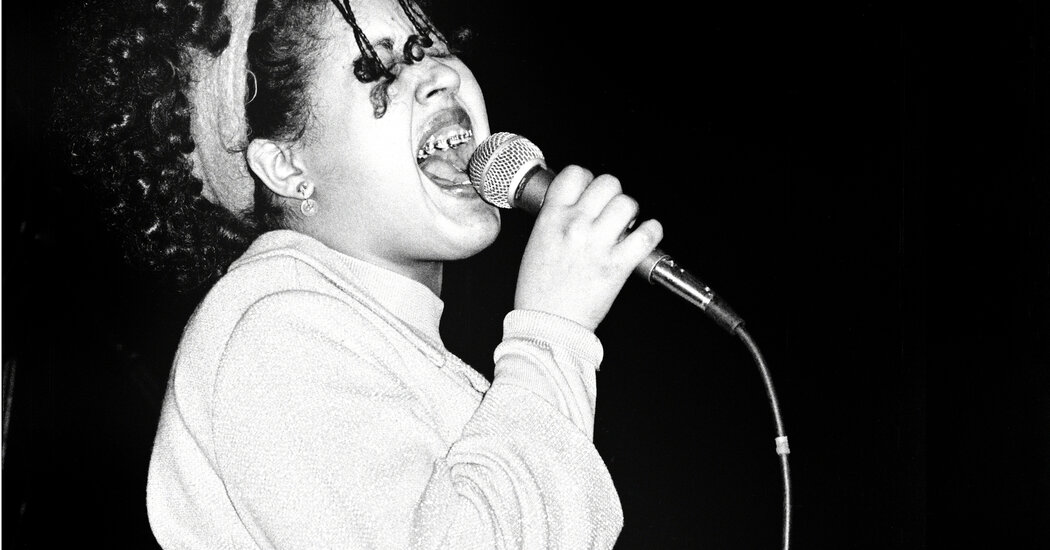
STYRENE WAS BORN Marianne Joan Elliott-Said in 1957 to a Somali father and an English mother, who raised Styrene and her siblings alone in a Brixton council estate. In her teenage years, struck with art and rebellion, Styrene fled home to hitchhike to hippie music festivals, stoking an ecological consciousness she would bring to punk. She immersed herself in theater, fashion, poetry and music. A bookish autodidact who left school at 15, she gravitated toward philosophy, the occult, Freud and Jung. As a cinephile she favored the retrofuturism of “Barbarella.” Her rock idols were David Bowie and Marc Bolan. She loved soul and reggae, and Bell said she cited singer-songwriters like Joni Mitchell, Carole King and Joan Armatrading as huge inspirations.
Styrene’s first pre-punk single was a pop-reggae song called “Silly Billy” about teenage pregnancy. It was produced by a man 16 years her senior named Falcon Stuart who would become her boyfriend and the manager of X-Ray Spex. (Bell said she received conflicting stories about Stuart, who died in 2002, over the years, noting in the film: “Sometimes she’d say he was the love of her life; other times, that he’d ruined it.”)
When punk hit, Styrene, at 19, was galvanized. Enamored of the Sex Pistols — a previously unseen clip of Styrene dancing in the crowd at one of their gigs recurs in the film — she placed an ad in Melody Maker searching for “yung punx” to “stick it together,” and assembled a crew that included the bassist Paul Dean and, briefly, the saxophonist Lora Logic (until Styrene kicked her out).
The band signed with Virgin for the classic “Oh Bondage Up Yours!” — its opening declaration, “Some people think little girls should be seen and not heard/But I think, oh bondage, up yours!” became feminist punk scripture — before moving to EMI for “Germfree Adolescents.” (Styrene was an uncredited producer on the album, Bell said.) The LP took them to “Top of the Pops” and the BBC, which broadcast a television documentary called “Who Is Poly Styrene?” where the singer famously described that she picked her stage name because it is plastic and disposable: “That’s what pop stars are meant to mean, therefore I thought I might as well send it up.”
The early BBC film and “I Am a Cliché” both depict Styrene’s mental health struggles, which the pressures of fame exacerbated. In 1978, she was misdiagnosed with schizophrenia; she was in a psychiatric hospital the first time she saw herself singing on television. Bell believes her mother’s condition was worsened by the media’s sexist scrutiny of her body as well as the destabilizing nihilism in punk.
“A lot of people think X-Ray Spex were a lot more underground than they were. But my mum did have that brush with celebrity,” Bell said. “There is a kind of fame where you can never escape from it, and that was the kind of attention that my mum had, even though it didn’t last very long. It didn’t last very long because she got out.”



